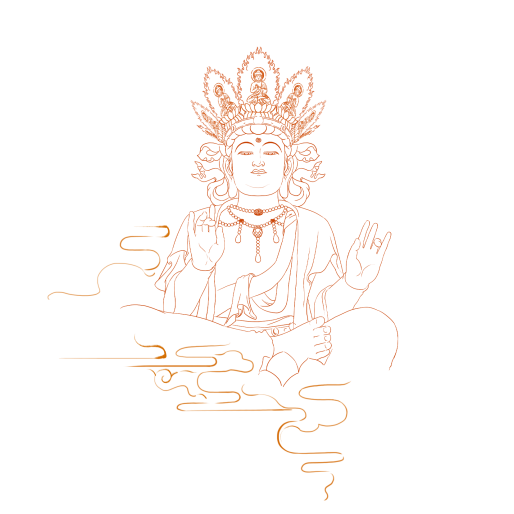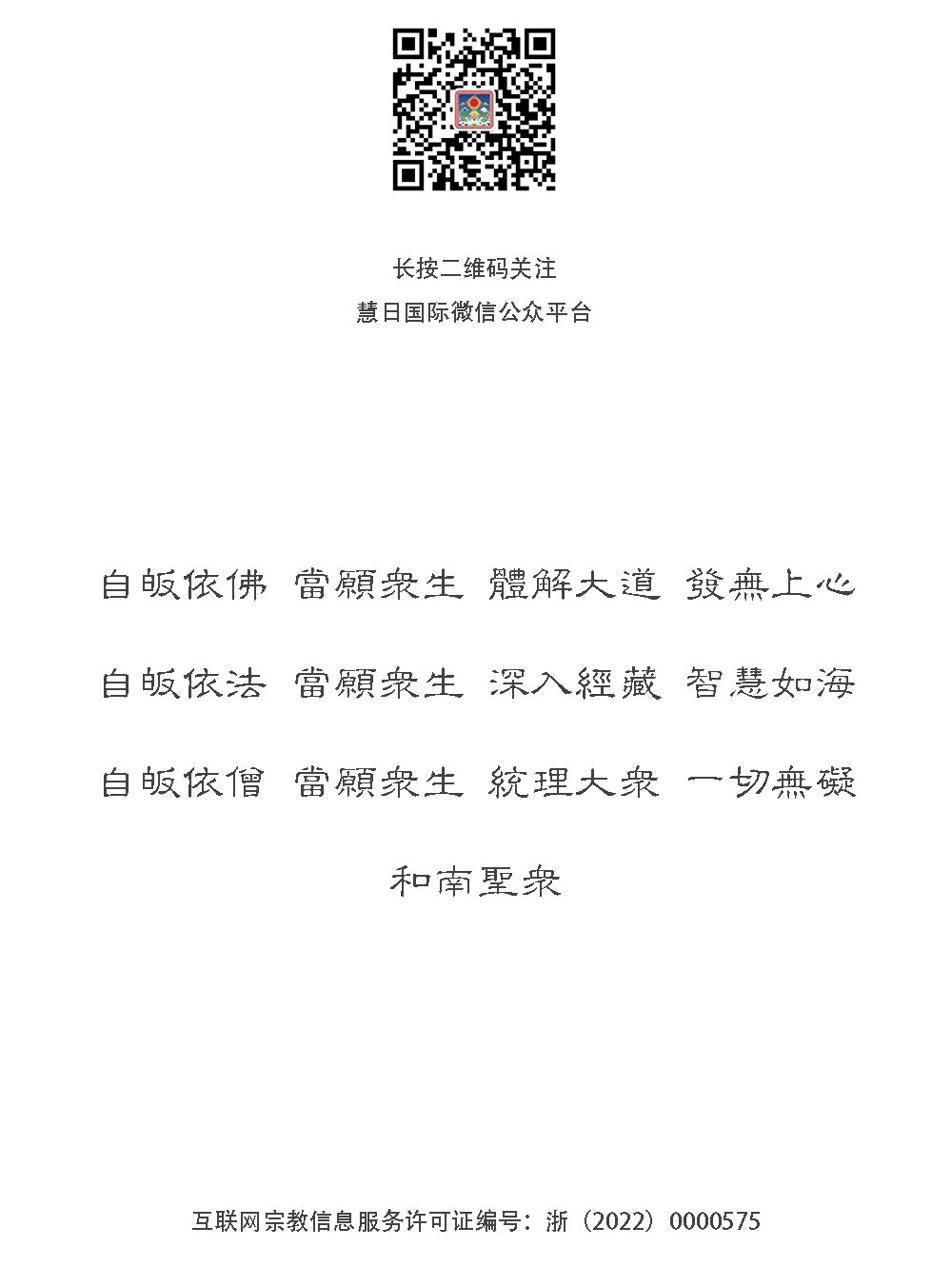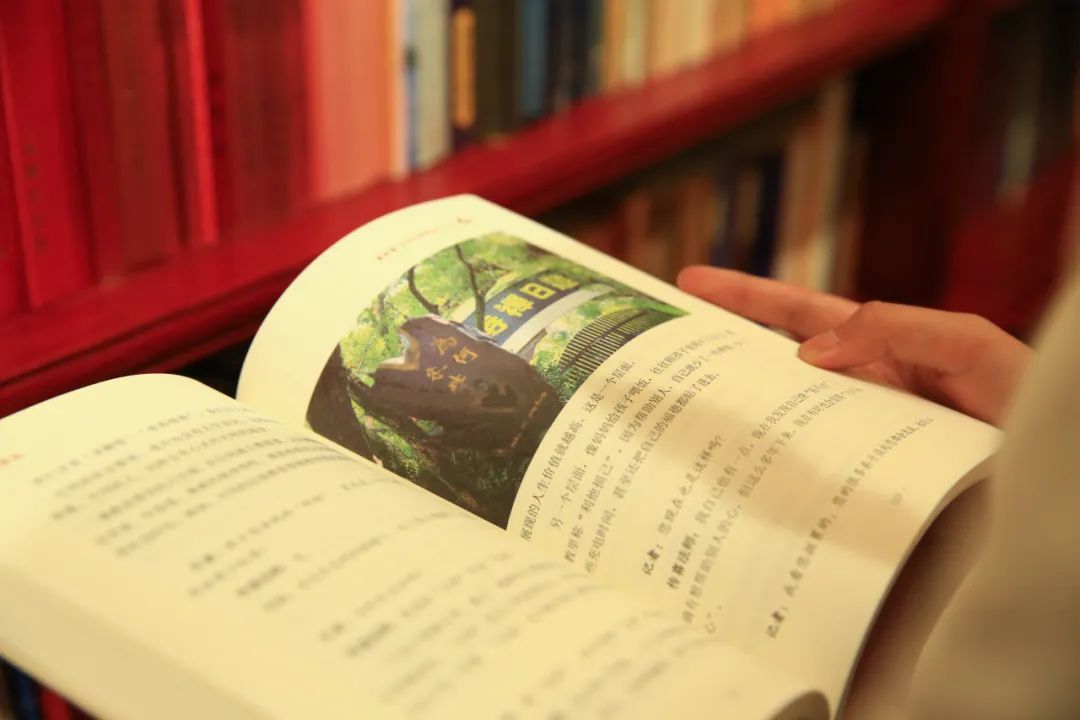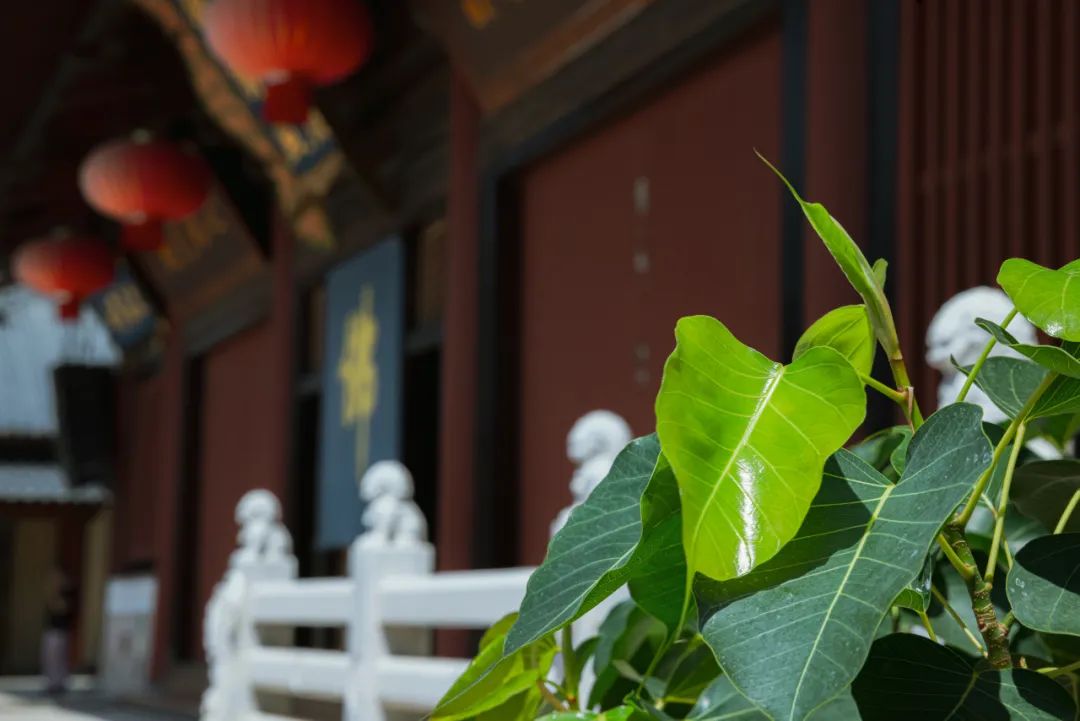文以载道
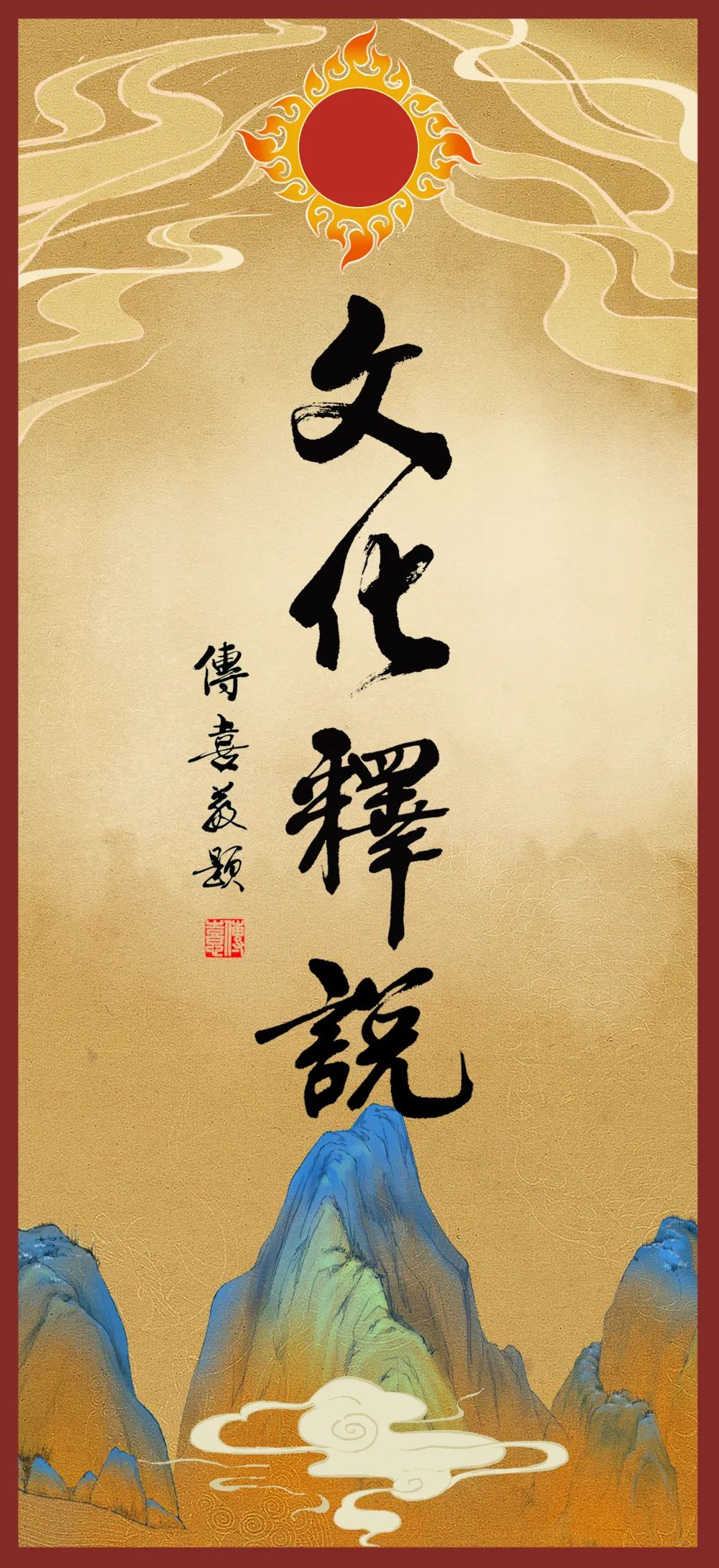
第二篇 观澜知源
Chapter Two –
Knowing the source of a water by observing the ripples: Putting into practice the Path of the Doctrine of the Mean
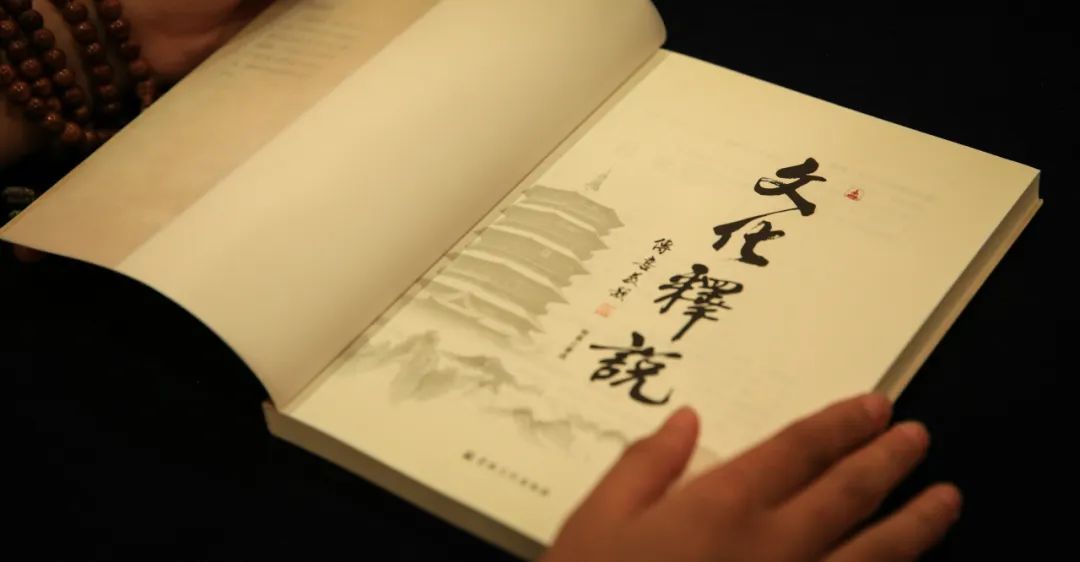
02.
道友相逢
不亦乐乎
Section 2.
The meeting of two people who both practice the Dao – is not that delightful?
观澜知源
Please click to play audio

《道德经》开篇就说:“道可道,非常道,名可名,非常名。”
佛教也讲:“言语道断,心行处灭。”
所以讲出来就不是“道”了。心思一起念,就不是“道”了,甚至儒学也讲:道也者,不可须臾离也,可离,非道也。
但是,你又不能起心动念,“喜怒哀乐之未发,谓之中”,“中”就是“道”。
The opening verses of the Dao De Jing say, ‘The Dao that can be spoken of is not the eternal Dao, the name that can be named is not the eternal name.’ It is also said in Buddhism that the Dao is beyond words as all mental fabrications are to be transcended.
Therefore, whatever that is spoken of is no longer the Dao.
Whenever ideation arises, it is no longer the Dao. It is even said in Confucianism, ‘That which is called the Dao cannot be separated from for an instant; that which can be separated from is not the Dao.’
However, you are not supposed to give rise to any mental formation and ideation.
‘When joy, anger, sorrow and pleasure have not yet arisen, this is called the Mean (中 centeredness, equilibrium).’
《中庸》说:“天命之谓性,率性之谓道,修道之谓教。”
天命是什么?我们讲“天”,每个人对“天”的解读是不一样的。
如果“天”是百分之百的话,我们对这个百分之百的“天”的领会,有可能是 1%、2%, 这 1%、2%都不能代表百分之百的“天”。
古人说盲人摸象,你不能说盲人没有摸到象,他摸到的是象的一部分。
The Doctrine of the Mean says, ‘What Heaven ordains is known as ‘nature’; accordance with this nature is known as the Dao; practising the Dao is known as ‘cultivation’.
What is the ordinance of heaven? The ‘heaven’ that we speak of is not understood in the same way for everyone.
What we apprehend might only be one or two percent of what heaven really is. This one or two percent is not representative of what heaven fully is.
As in the ancient parable about the blind men touching and feeling the elephant, you cannot deny that the blind men did manage to touch the elephant.
What they felt was only a part of the elephant.
我们探索“天命之谓性”。
我个人几十年对中华文明研究,得出这样一个感悟,中国的文字叫“文以载道”,在表述“道”的时候,开篇即是最高的。
Let us explore ‘what Heaven ordains is known as ‘nature’’.
The comment I want to make after having studied the Chinese culture for several decades is this: for the Chinese, ‘words are for carrying the Dao’.
In describing the Dao, the opening passage is of utmost importance.
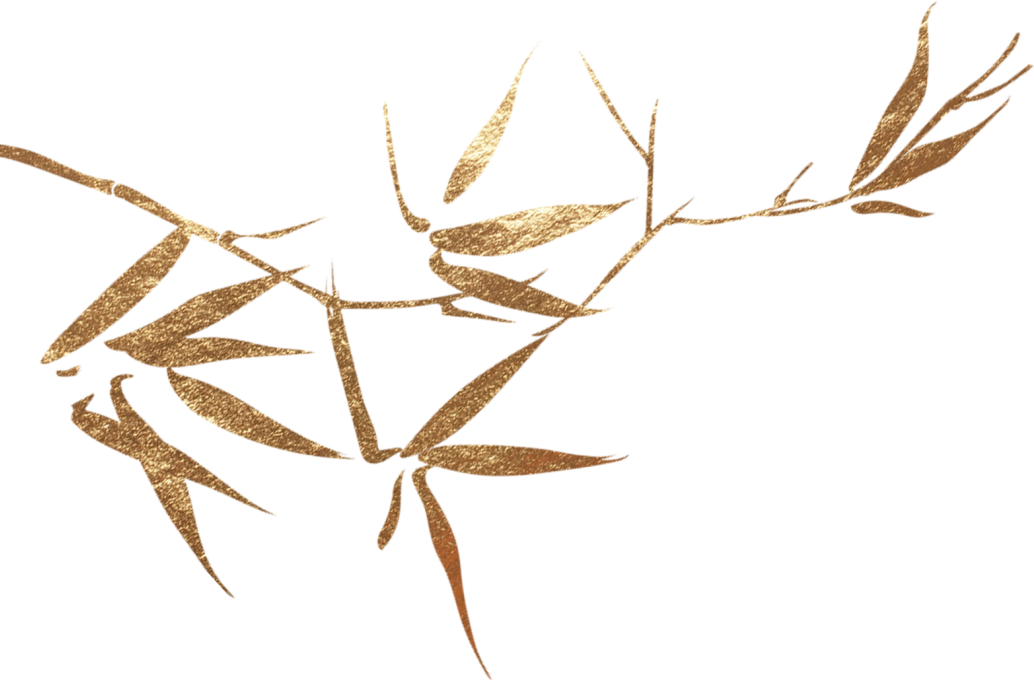
有学者说,《中庸》一书的核心有两个字:仁与诚。
“仁”是老师的状态,老师对社会如果没有承担,对众生如果没有仁慈,就不会把自己体悟的“道”告诉众生。
弟子跟着孔老夫子,游山川观风景,夫子说:吾无隐乎尔。
There are scholars who say that there are two components at the core of The Doctrine of the Mean: benevolence and integrity. ‘Benevolence’ is the state being of the teacher. If the teacher does not take it upon himself to be answerable to society, and does not feel a sense of humanity and kindness towards myriad beings, he will not share his realization of the Dao with myriad beings. As they were enjoying the scenery of the mountains and creeks, Confucius told his disciples who had followed him on his travels, ‘I have hidden nothing from you.’
《论语》开篇就讨论学习,这是人生快乐的事,是弃暗投明,不明白“道”叫无明。
所以“大学之道”在“明明德”,在“亲民”, 在“止于至善”。
人生最高的学问就是明白“道”,明白那个“明德”,安住在“明德”里,“止于至善”。
“止于至善”有两个:一是自己止于至善,一是令众生也止于至善。
There is a discussion of learning at the beginning of The Analects. It is a pleasurable thing in life, an ‘abandoning of darkness to become illuminated’. Not understanding the Dao is ‘the absence of illumination’ (or ignorance). Therefore, ‘the way of the Great Learning’ is to ‘make luminous one’s bright virtues’, to ‘love the people’, and to ‘stop only at ultimate wholesomeness’. The highest knowledge in life is to understand the Dao, to know those ‘bright virtues’, abide in them, and to ‘stop only at ultimate wholesomeness’. There are two sides to ‘stopping at ultimate wholesomeness’: firstly, to let oneself arrive at ultimate wholesomeness; and secondly, to let myriad beings reach ultimate wholesomeness.
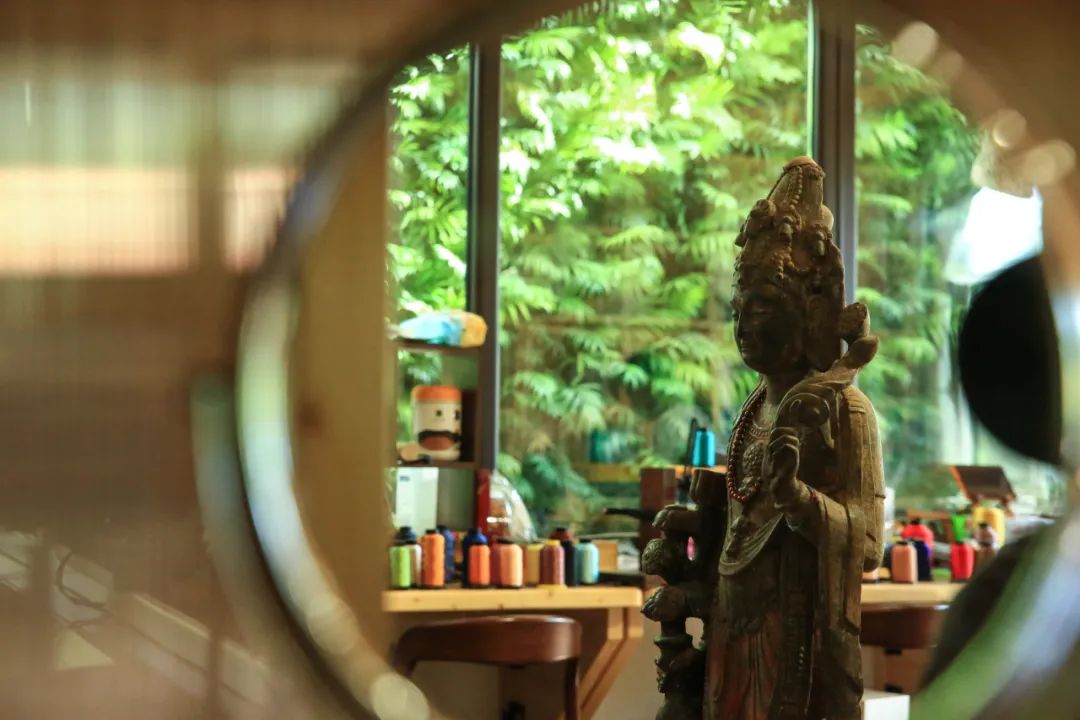

03.
观澜知源
中流砥柱
Section 3.
Seeking out the source of a water by observing the ripples: being like a rock standing firm in the middle of a flowing stream
观澜知源
Please click to play audio

趵突泉水流出来,涌进大明湖。为什么这样命名“大明湖”?老祖先是不会乱取名字的,而是特意告诉我们湖水从哪来,所以“明” 字中的“日”字,这边多了“一点”,趵突泉的“突”字的宝盖头上面,这边少了“一点”。
The water of Baotu Spring flows into the Lake of Great Illumination. Why is it called the ‘Lake of Great Illumination’? Our ancestors did not settle on names casually. They had intended to tell us specifically where the water in the lake came from. That is why there is an extra stroke in the character ‘明’ of ‘大明湖’ (‘Lake of Great Illumination’), and a missing stroke in the character of ‘突’ of ‘趵突泉’( Basotu Spring), to signify the flow of water from Baotu Spring to the Lake of Great Illumination.
趵突泉古称泺源,从道学的含义讲,代表文化之源。在趵突泉公园里,还有皇帝的题字,一进门大牌坊上书四字:观澜知源。澜是什么? 澜是现象;源是什么?源是本质。一个人如果只活在现象里,是很痛苦的。如果能够透过现象看到本质,才是快乐的、自在的、解脱的。
Baotu Spring is known in ancient times as the Lake of Origin. From the perspective of the Dao, it signifies the source of a culture. Within the park of Baotu Spring, there is also an Emperor’s inscription of four characters on a board at the main gate: ‘观澜知源’ (seeking out the source of a water by observing the ripples). What are ripples? Ripples are appearances. What is the source? The source is the essence. It will be very unbearable for a person to lead his life only among appearances. It is only when one penetrates through the appearances and grasps at the essence that one can be happy, carefree, and emancipated.

这是从“明明德”的角度上说,应该如此。
如果已经“明”了“明 德”,
得到“体”的人,明白了这个道理,
更知道“道”无处不在。
甚至一个人在房间里,也知道“道”亦在,天地鬼神亦在,所以有“慎独”的思想,这个是“用”。
所以,“明明德”之后的人,懂得这个道理的人,会敬天地、敬道,
虽独处暗室也保持着心的光明状态。
This is from the perspective of ‘illuminating one’s bright virtues’.
It should be this way.
If one has already ‘illuminated’ one’s bright virtues’, gained the essence of it all, and understood the doctrine, then he knows that the Dao is everywhere.
Even when a person is in his room, he is aware that the Dao is also present, together with all heavenly divines and earthly ghostly beings.
Therefore, having caution in mind when one is alone is the effect [of being aware of the Dao].
As such, after one has ‘illuminated one’s bright virtues’ and understood the doctrine, he will be respectful of the heaven and the earth, and the Dao.
He will keep his mind in a state of illumination even though he finds himself alone in a dark room.



频繁刷手机,我们的心灵很容易被碎片化,不要沉溺其中,学会自我节制,通过学习佛法来有效滋养并净化我们的心灵,一起回归心灵,保持身心灵的健康。
Frequent phone usage can easily fragment our minds. Avoid indulgence and practice self-restraint. Studying Buddhism can effectively nourish and purify our minds. Let us return to our true selves and maintain the health of our body and mind together.

